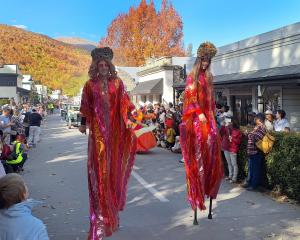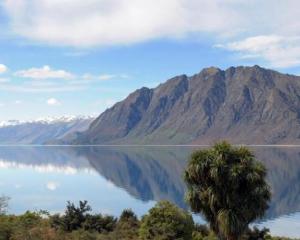
Mike Almquist, who built a winery in Washington State in 2008 and added a distillery a year later, bought the Mount Soho Winery property from original owners Ed and Carol Lamont in 2018.
The property, bordering McDonnell and Hogans Gully Rds, is best known for its Mount Soho (renamed Vingard) function venue; however, it’s also been consented for wine storage and a cellar door since 2005.
It’s understood the Lamonts made wine from their grapes two or three times, and Almquist has also twice made wine, "but I quickly came to the realisation the building is more of a beautiful modern-day chapel than a modern winery".
The building isn’t suitable for remodelling, he says, so he’s instead chosen a site in a gully, "so no one would see it", for a new building that would also include wine tasting and a cafe/restaurant.
He commissioned Queenstown’s Wyatt + Gray Architects to design a large shed-like building that fitted in with the rural environment.

The building would also be eco-friendly with a massive array of solar panels.
About 75% of the facility — with a floor area of about 1200 square metres — would be dedicated to wine-making, with almost half the space used for barrel storage.
Almquist submitted his resource consent application in February this year.
Then, after a local "threatened" his council consent consultant with a judicial review if his non-notified application was approved, he changed it to a fully-notified application.
He says he’s "very puzzled and frustrated" by the planning process.
"I’ve never been through this before, and it’s pulling teeth, it’s very difficult.
"The New Zealand government said they wanted talented immigrants to come and build businesses.
"My consent application will ultimately take almost a year and cost $100,000-plus.
"This was not what I expected when moving to the other side of the world, buying an already-consented winery to make Central Otago wine."
Almquist notes he’s surrounded on one side by the planned Hogans Gully golf resort and on the other by a retirement village, "so I’m not exactly sure how a winery on a rural piece of land, making wine from the grapes of vineyards on my site, is such a no-no, especially since it’s been consented since 2005".
Several neighbours have lodged objections on the grounds the winery/distillery is "a commercial industry activity" that’s unsuitable in a rural area — Warren and Lisa Bates, for example, call it a factory.
Peter and Tiffany Campbell say they wouldn’t have invested in the area if they’d known an activity of this nature could be established.
"The commercial use of this building will result in significant adverse effects on residential amenity", they say, including hours of operation (till 10pm), traffic (with a bus park and 27 carparking spaces), noise and light pollution (from cars leaving at 10pm).
Almquist says producing wine and spirits wouldn’t be noisy and only run from 9am till 5pm, Monday to Friday, while deliveries of glass and grapes would last only 14 hours a year.












